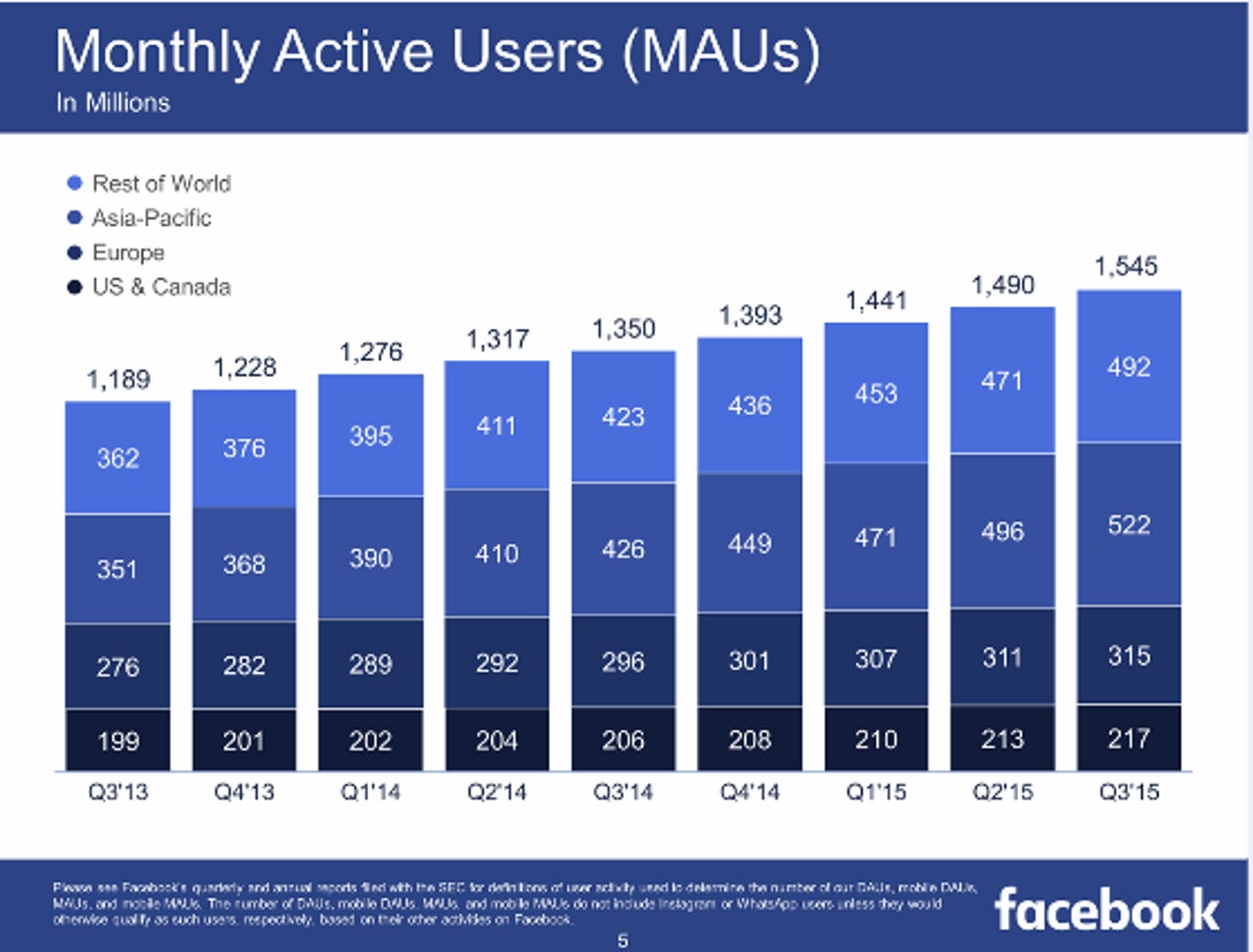Facebook's Zuckerberg: Virtual reality will have slow ramp

Facebook CEO Mark Zuckerberg said virtual reality will develop slowly as a computing platform, but the company and its Oculus unit is in for the long haul.
Oculus will launch broadly for the holidays via a Samsung headset that retails for $99. Coupled with efforts from Google and Microsoft's high-profile HoloLens, virtual and augmented reality will be pushed to the broader market.
Also: NASA shows the world its 20-year virtual reality experiment to train astronauts: The inside story
It's worth noting that Microsoft's approach is enterprise heavy with the HoloLens although gaming is an obvious market. Zuckerberg sees virtual reality as a messaging and computing platform too.
On Facebook's third quarter earnings conference call, Zuckerberg said:
The first thing that I want to stress here is that these kind of new platforms take a long time to develop. So we've said often that we think that virtual reality and augmented reality could be the next big computing platform. But just to put that in perspective and compare it to the development of previous computing platforms, like phones and computers, I think the first smartphones came out in 2003. And in the first year, I think BlackBerry and Palm Treo were the initial smartphones that came out. I think they each sold in the hundreds of thousands of units. So just to kind of give a sense of the time frame that we're thinking about this and how we expect this to develop, that's how we're thinking about that.
In terms of the actual content, first, we think gaming is going to be the most obvious market. There are around, I think, more than 200 million, almost 250 million people who have either an X-Box, a PlayStation or a Wii. And we think that that audience is going to the type of people who are going to be very excited about the type of experiences initially that you can have with virtual reality. And the advantage of that is also that some of those can be single player experiences. They don't require a big network effect or a lot of people having the technology or large installed base.
Once we start getting a bit further along with that, then the next thing that we think is going to be huge is video and immersive experiences, both things that people can create, like the social content that they share on Facebook today, and more professional and premium content, both short form and longer form. But we'll start to see some experimentation with that. There already is some very good content. But until there are millions of units out in the market, I don't expect that to be a big industry for folks to be investing a huge amount in 2016.
As a company, Facebook isn't expecting massive volume for Oculus (CNET take). Businesses will experiment with virtual reality, but probably won't have to ponder how it fits in with productivity or bring your own device policies until 2017.

Analysts were asking a good bit about virtual reality largely because they are trying to model the next leg of Facebook's growth. Facebook owns social and messaging, but doesn't have parts of the rest of the digital pie.
ZDNet reading list: Google brings VR to the masses with broader Cardboard app availability | Samsung Gear VR price cut in half while support for Galaxy smartphones expands | Australian defence force employs Oculus gear to explore VR | The best Virtual Reality headsets for an immersive VR and AR experience | Microsoft's HoloLens big for business? Object Theory thinks so | NASA to give Microsoft's HoloLens a spin in space | Microsoft's HoloLens: Wooing developers will be everything | Microsoft reveals more on HoloLens hardware, gets 3D print boost from AutoDesk | Microsoft's HoloLens: Enterprise boon or boondoggle?
Facebook has plenty of headroom to monetize its user base, which now has 1 billion active users a day. But Edison analyst Richard Windsor argued that Facebook needs to be involved with more of your digital life.
Windsor said:
Facebook has a very tight grip on both the Social Media and Instant Messaging segments of Digital Life but not much else. This is where things get interesting as the narrow coverage implies that like Twitter, Facebook will run out of growth at some point unless it begins to address the other segments of Digital Life.
Edison research indicates that Facebook is looking at expanding into Gaming, Search and Media Consumption which would give it 79% coverage and market leadership of the overall pie. If this is then combined with Edison's forecast of 1.7bn mobile users by the end of 2018E, it is not difficult to see how Facebook can increase its revenues by an order of magnitude from here. The big question is whether it can get its ducks in a row to benefit from the next leg up before the current growth grinds to a halt.
What remains to be seen is whether virtual reality and Oculus becomes that next growth engine.
More on virtual reality at TechRepublic: The state of virtual reality content: What the industry is doing to create compelling experiences | 10 ways virtual reality is revolutionizing medicine and healthcare | How Sierra Club is using virtual reality to put viewers on the frontlines of climate change | Digital cadavers: How virtual reality and augmented reality can change anatomy class | Review: View-Master Virtual Reality offers a $30 on-ramp to VR | Keep up with VR: 15 Twitter accounts to follow | Virtual reality and augmented reality in the workplace: A primer for CIOs